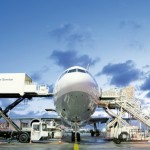Europa, Cockpit
Relatório final sobre o acidente da Germanwings
A Comissão Europeia publicou o relatório final que recebeu de uma Task Force presidida pela Agência Europeia para a Segurança da Aviação (AESA), sobre o acidente do voo 9525 da Germanwings.
Criada em Maio a pedido da Comissária da União Europeia (UE) responsável pelos Transportes, Violeta Bulc, a Task Force analisou as conclusões preliminares do inquérito para avaliar a adequação da segurança aérea europeia e as normas de segurança.
No seu relatório, a Task Force emite seis recomendações que a Comissão irá analisar aprofundadamente antes de tomar uma decisão sobre as etapas futuras.
As recomendações prendem-se com a continuação da medida que obriga a presença permanente de duas pessoas no cockpit, os pilotos devem ser submetidos a uma avaliação psicológica antes de começarem a trabalhar nas companhias, e as companhias aéreas devem efectuar rastreios aleatórios para detecção de álcool e drogas.
Deve ainda ser criado um programa de apoio aos pilotos, um arquivo de dados de medicina aeronáutica e as companhias devem proceder ao reforço da formação de especialistas desta área da medicina.
As a result of its work, the Task Force delivered a set of 6 evidence based recommendations to the European Commission on 16 July 2015. Particular effort was made to balance medical secrecy and safety, and apply proportionality between safety objectives and technical solutions. The recommendations are listed below:
Recommendation 1: The Task Force recommends that the 2-persons-in-the-cockpit recommendation is maintained. Its benefits should be evaluated after one year. Operators should introduce appropriate supplemental measures including training for crew to ensure any associated risks are mitigated.
Recommendation 2: The Task Force recommends that all airline pilots should undergo psychological evaluation as part of training or before entering service. The airline shall verify that a satisfactory evaluation has been carried out. The psychological part of the initial and recurrent aeromedical assessment and the related training for aero-medical examiners should be strengthened. EASA will prepare guidance material for this purpose.
Recommendation 3: The Task Force recommends to mandate drugs and alcohol testing as part of a random programme of testing by the operator and at least in the following cases: initial Class 1 medical assessment or when employed by an airline, post-incident/accident, with due cause, and as part of follow-up after a positive test result.
Recommendation 4: The Task Force recommends the establishment of robust oversight programme over the performance of aero-medical examiners including the practical application of their knowledge. In addition, national authorities should strengthen the psychological and communication aspects of aero-medical examiners training and practice. Networks of aero-medical examiners should be created to foster peer support.
Recommendation 5: The Task Force recommends that national regulations ensure that an appropriate balance is found between patient confidentiality and the protection of public safety. The Task Force recommends the creation of a European aeromedical data repository as a first step to facilitate the sharing of aeromedical information and tackle the issue of pilot non-declaration. EASA will lead the project to deliver the necessary software tool.
Recommendation 6: The Task Force recommends the implementation of pilot support and reporting systems, linked to the employer Safety Management System within the framework of a non-punitive work environment and without compromising Just Culture principles. Requirements should be adapted to different organisation sizes and maturity levels, and provide provisions that take into account the range of work arrangements and contract types.
Documento : Acidente germanwings relatório final (PDF)










